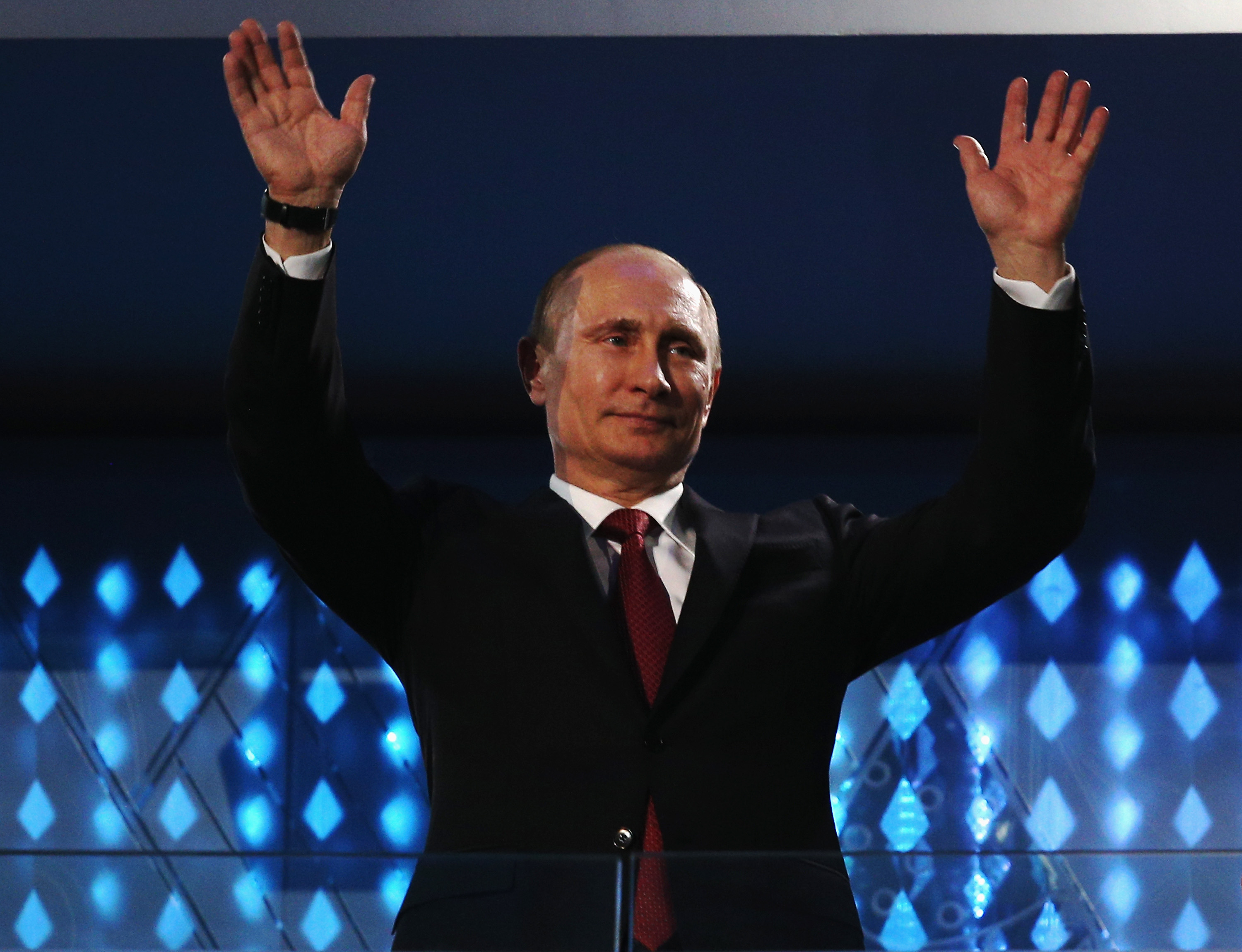3 ideas on how to stop Vladimir Putin
Hannah Peters/Getty Images


A free daily email with the biggest news stories of the day – and the best features from TheWeek.com
You are now subscribed
Your newsletter sign-up was successful
As Russian President Vladimir Putin works quickly to consolidate Russia's new hold on the Ukrainian province of Crimea, the West is trying to come up with a united and appropriate response. Most people are trying to find the right middle ground between sending in U.S. Marines to liberate Crimea and ignoring Putin's naked expansionist aggression. --Peter Weber
Kneecap Putin's cronies
The sanctions leveled against Russian officials by the U.S. and Europe are too weak and irrelevant to make any difference, says Russian opposition figure Alexei Navalny in The New York Times. To get to Putin, "Western nations could deliver a serious blow to the luxurious lifestyles enjoyed by the Kremlin's cronies who shuttle between Russia and the West." After naming names, Navalny adds:
The Week
Escape your echo chamber. Get the facts behind the news, plus analysis from multiple perspectives.

Sign up for The Week's Free Newsletters
From our morning news briefing to a weekly Good News Newsletter, get the best of The Week delivered directly to your inbox.
From our morning news briefing to a weekly Good News Newsletter, get the best of The Week delivered directly to your inbox.
The invasion of Ukraine has polarized members of Russia's elite, many of whom view it as reckless. Real sanctions, such as blocking access to their plush London apartments, will show that Mr. Putin's folly comes with serious costs. [New York Times]
Meet Putin's fire with a thick blanket
The West needs to isolate Putin completely until he pulls out of Crimea, says Sen. Marco Rubio (R-Fla.) in The Washington Post. "The Russian people should see that Putin's actions will bring about a decline of Russia's status as a global power, not a return to supposed Soviet glory." The U.S. and its NATO allies should also impose an arms embargo and open up NATO membership to "all interested partners in Europe." Finally, Rubio adds, Obama should up his reassurances to the former Soviet satellites nervous about Putin's neo-imperialist actions, providing "lethal military support" and deploying "additional military assets and even U.S. personnel to our allies, including Poland and the Baltic states."
Walk softly but carry a big stick
The point of U.S. and European actions should be to keep Putin out of the rest of Ukraine — Crimea is already in Russia's hands, says Fred Kaplan at Slate. But the key to boxing in Putin is understanding that his "actions have been driven less by a belief that the West is weak than his knowledge that Russia is." That doesn't mean the West can ignore Putin — "a bitter autocrat with a head full of grandiose daydreams can be a dangerous creature." What's needed is a ratcheting up of penalties while leaving room for diplomacy, he says:
A free daily email with the biggest news stories of the day – and the best features from TheWeek.com
Draw up plans for containing and countering Russian troops in the event of an incursion into Ukraine — not sending U.S. or NATO troops, but shipping arms, maybe some advisers and black-bag Delta forces — and talk about these plans with the allies, and Ukrainian officials, on open phone lines. Putin surely knows the limits of his army.... Over those same unencrypted phone lines, a senior official should also talk about some moves that would really isolate Russia from the rest of the world.... These are threats of actions to take place if Russia goes deeper into Ukraine — not reprisals for the seizure of Crimea, which would have no effect and probably wouldn't be enforced anyway. [Slate]
Peter has worked as a news and culture writer and editor at The Week since the site's launch in 2008. He covers politics, world affairs, religion and cultural currents. His journalism career began as a copy editor at a financial newswire and has included editorial positions at The New York Times Magazine, Facts on File, and Oregon State University.
-
 Nuuk becomes ground zero for Greenland’s diplomatic straits
Nuuk becomes ground zero for Greenland’s diplomatic straitsIN THE SPOTLIGHT A flurry of new consular activity in the remote Danish protectorate shows how important Greenland has become to Europeans’ anxiety about American imperialism
-
 ‘This is something that happens all too often’
‘This is something that happens all too often’Instant Opinion Opinion, comment and editorials of the day
-
 House votes to end Trump’s Canada tariffs
House votes to end Trump’s Canada tariffsSpeed Read Six Republicans joined with Democrats to repeal the president’s tariffs
-
 Nobody seems surprised Wagner's Prigozhin died under suspicious circumstances
Nobody seems surprised Wagner's Prigozhin died under suspicious circumstancesSpeed Read
-
 Western mountain climbers allegedly left Pakistani porter to die on K2
Western mountain climbers allegedly left Pakistani porter to die on K2Speed Read
-
 'Circular saw blades' divide controversial Rio Grande buoys installed by Texas governor
'Circular saw blades' divide controversial Rio Grande buoys installed by Texas governorSpeed Read
-
 Los Angeles city workers stage 1-day walkout over labor conditions
Los Angeles city workers stage 1-day walkout over labor conditionsSpeed Read
-
 Mega Millions jackpot climbs to an estimated $1.55 billion
Mega Millions jackpot climbs to an estimated $1.55 billionSpeed Read
-
 Bangladesh dealing with worst dengue fever outbreak on record
Bangladesh dealing with worst dengue fever outbreak on recordSpeed Read
-
 Glacial outburst flooding in Juneau destroys homes
Glacial outburst flooding in Juneau destroys homesSpeed Read
-
 Scotland seeking 'monster hunters' to search for fabled Loch Ness creature
Scotland seeking 'monster hunters' to search for fabled Loch Ness creatureSpeed Read
